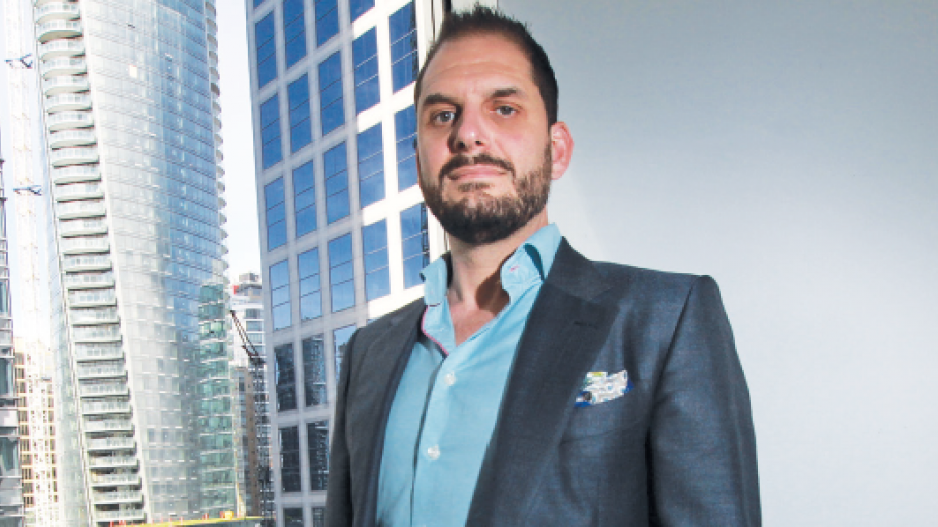Whether it's downhill mountainbiking, motocross or snowmobiling, Nate Kube is passionate about “anythingaggressive” to do with speed.
But for Kube, what givesthe cybersecurity pioneer the licence to push the forces of fast are hisbrakes. He uses this analogy to underline the importance of cybersecurity inexpanding and improving connectivity among not only humans in the digital age,but also the operating devices of major industrial facilities that we dependon.
“They say you have brakeson your car so you can stop. No – it’s so you can go fast. If you didn’t havebrakes you’d have to drive pretty slow. Cybersecurity is the same thing forconnectivity. In order to have fast connectivity and [for] everything to talkto each other it’s got to be secure,” said Kube, founder and chief technologyofficer of Vancouver-based Wurldtech. “We’re an enabler of connectivity and going fast.”
Fast is also the pace ofgrowth at Wurld-tech as oil refineries, water utilities, power plants and otherlarge industrial sites increasingly embrace automation – otherwise known intech-sector jargon as “operations technology,” “industrial Internet” or the“Internet of Things.”
More and more, operatingdevices and hardware are talking to each other in centralized networks used bycompanies to streamline operations.
However, each talkingdevice is a potential weak link in a chain of defence against cyberattacks.
Strengthening those linksis the business of Wurldtech. Founded in 2006, the company has built a nicheoperation working with device manufacturers, like General Electric, and systemoperators to protect critical infrastructure.
The company’s servicesand products include assessment, protection and certification programs for itscustomers’ network systems. In May 2014, Wurldtech was acquired by GE and isnow formally integrated as a wholly owned subsidiary of the conglomerate.
VanedgeCapital Partners Ltd. bought into Kube and Wurldtech aslead investors in the company’s Series A funding two years prior to the transaction. Moe Kermani, Vanedge managingpartner, said cybersecurity was a nascent, underexploited market and Wurldtechwas “ahead of its time.”
“I think the acquisitionof Wurldtech by GE accentuates how forward-looking Nate was with respect torecognizing cybersecurity for industrial controls and for what today is knownas the ‘Internet of Things’ was going to become a problem,” Kermani said.“Those are the kind of forward-thinking entrepreneurs who create greatcompanies and make a big difference.”
Kube said Wurldtech hasexperienced 100% growth since its acquisition.
The company is increasingits Vancouver headquarters fivefold with a move to Bentall Centre in Octoberand now counts offices in California, Georgia and Abu Dhabi, United ArabEmirates.
In the beginning, Kube’sundergraduate and PhD studies at University of Victoria, where he was anaward-winning student, focused on math and computer science – a solidfoundation for building algorithms to underpin computer security. Inparticular, as part of a project for a U.S. government agency, he developed anumber of algorithms that proved very effective at revealing security flaws incritical equipment used by the oil and gas sector.
So, he decided to wrap abusiness around the algorithms.
Kube went to an energyconference and invited the top tight-lipped security executives from severalbig oil companies into a room. Kube then showed them all the ways he couldremotely cause massive destruction to their facilities. It took a while for hisguests to un-pucker.
“They’d never heard of mebefore, and they asked me if I was there to extort them,” Kube said, laughing.“What I was there to do was to ensure this type of critical risk doesn’t entertheir facilities going forward. I was going to build a certification program.These big oil companies would mandate testing by my new company as part oftheir procurement requirements so they ensure this type of cyber-risk isfixed.”
Kube’s timing, coincidingwith the rise of industrial connectivity, was a windfall. So, too, have been anumber of cyberattacks that have occurred since then. Last December, a Germangovernment agency reported a steel mill suffered “massive damage” following acyberattack on the plant’s network. Attackers used booby-trapped emails tosteal log-ins that gave them access to the mill’s control systems. According to Ponemon Institute, which conducts independent research on privacy and dataprotection, 67% of critical infrastructure companies suffered an attack lastyear.
“I can’t go into too manyspecifics, but we get called in when something goes awry, and we see more ofthat today than we did three years ago,” Kube said.
Strategic acquisition
GE may as well standfor God of Everything – the company is one of the largest and most diversifiedinfrastructure and financial services corporations in the world. It posted$148.6 billion in revenues in 2014. Yet Wurld-tech was not an afterthoughtacquisition, but rather a very strategic purchase. In GE’s last annual report,cybersecurity is spotlighted as one of the company’s main focuses. InSeptember, the company announced the creation of GE Digital, an integration ofall their digital offerings backed by “the industrial security strength ofWurldtech.”
Paul Rogers, GE’s general manager of industrial cybersecurity, said his fieldis one of the company’s “top priorities” in terms of both protecting theirbusiness and expanding it. First is having Wurldtech ensure all of theindustrial equipment GE builds and markets is cyber-secure. Second is creatingnew opportunities.
Thefuture remains fast--forward for Kube. He sees new growth in health care andtransportation, big sectors that have built up connectivity on a large scale.There is also “huge opportunity” for Wurldtech to raise its profile and be seenas the de facto trusted brand to help make companies more insurable. Last year, Lloyd’s ofLondon was reportedlyrefusing to insure power companies against cyberattack because their defenceswere perceived as weak. Other insurers conservatively cap coverage amounts toonly a margin of the potential costs owing to high-risk profiles.
Wurldtech could alsoprovide “complete and total management security service” to industrialcustomers.
“Big refineries can outsource the same way big companiesoutsource some of their IT,” Kube said. “We want to allow the big operationalfacilities – the gas plants, the hydro facilities – to outsource effectivelytheir cybersecurity to a company like GE.” •





